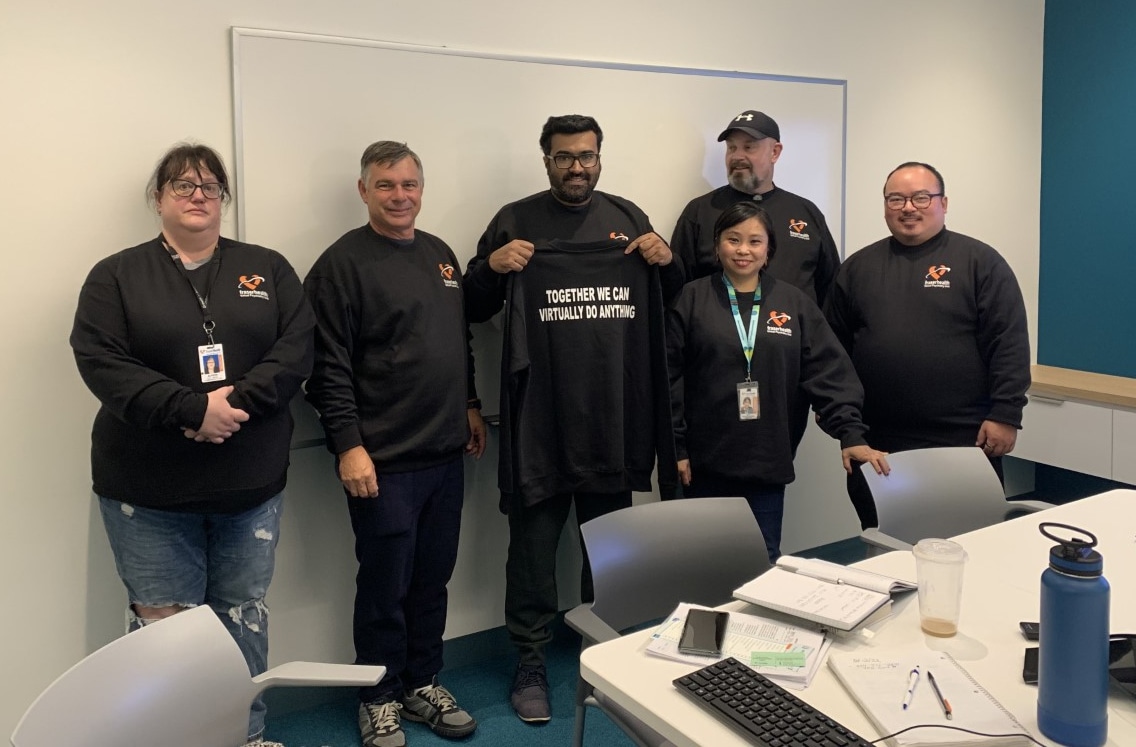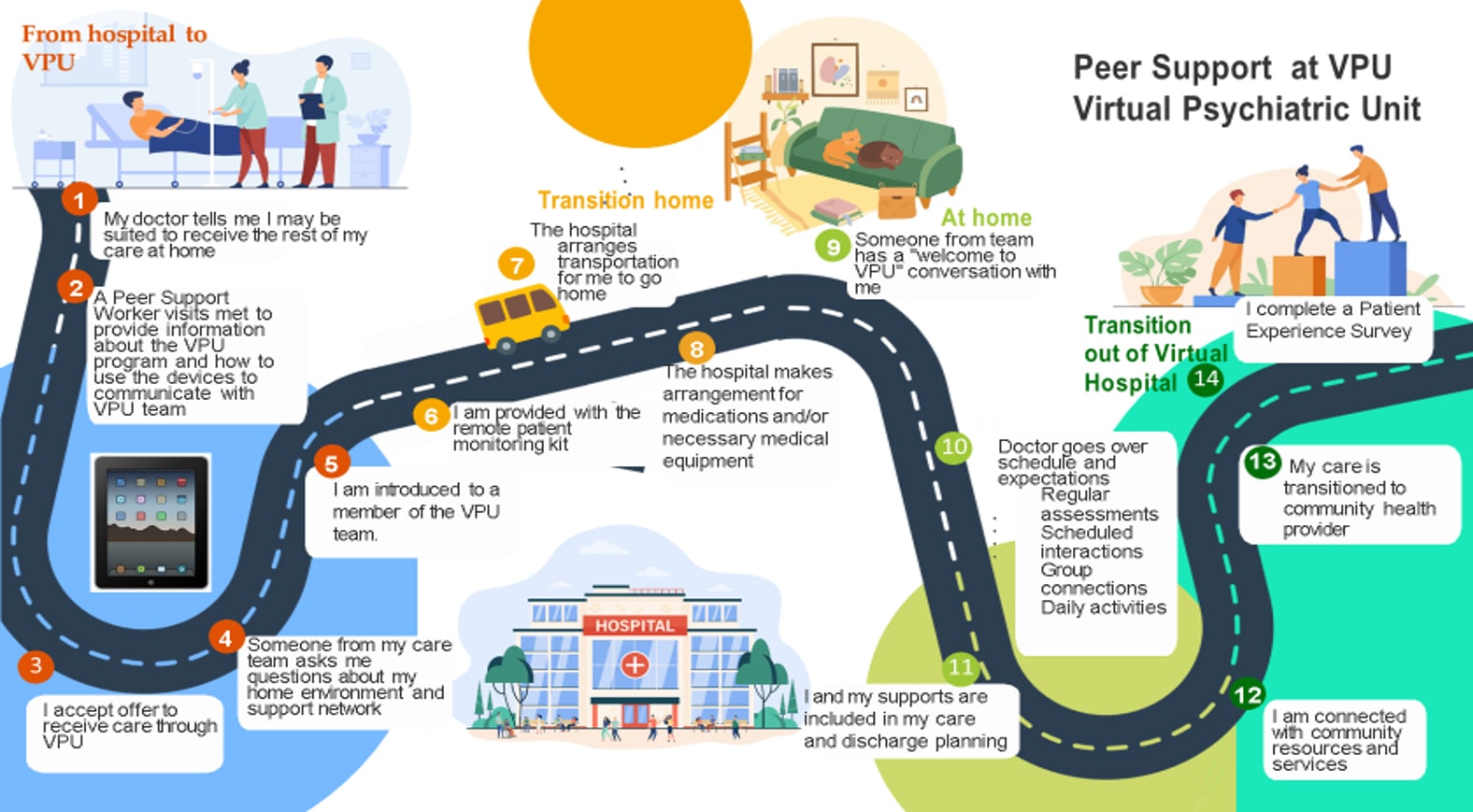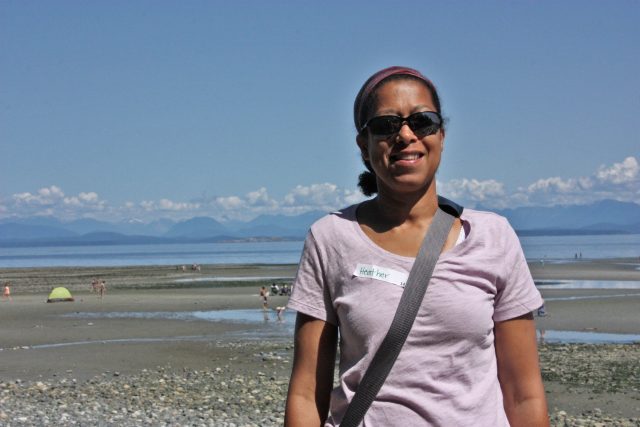
Staff
Peer Support Workers Join VPU
Communitas’ Peer Support Workers (PSWs) have been supporting people living with mental health challenges for years. Some PSWs support people right in their home communities, while others support the people they serve on psychiatric units in hospital. No matter where they serve, all PSWs know that person-centred care is important to one’s mental health recovery.
Aaron Smith (pictured above in the ball cap) has been a PSW with Communitas for 6 years. As he journeys with people on the road to mental wellness, he seeks to inspire recovery and instill hope.
“My hope is that the people we talk to can realize, there is life beyond a diagnosis,” Aaron says.
Research suggests that for those who are in hospital, getting back to their home setting as soon as safely possible is key to that recovery. That is why Communitas Peer Support Services has been working with Fraser Health’s new initiative: the Virtual Psychiatric Unit (VPU.)

Patrick Raymond coordinates Peer Support Services for Communitas. He says PSWs have been involved with this project from the very beginning and he’s excited to see how they have been able to contribute.
“This is huge, involving nurses, psychiatrists, doctors, and PSWs. There’s a whole team training together to make this possible,” he says.
The VPU is an alternate way to receive acute care for a person who required admission to hospital but who can safely receive care through virtual means while at home with the full support of a team around them. This support provides people with a smoother transition as they return home and still have 24-hour wrap around care. Technology also plays a role. People go home with remote monitoring devices that take vital sign readings and iPads that make virtual video visits possible.

Radhika Khosla is a clinical nurse educator with Fraser Health and has been at the forefront of the creation of VPU. She believes that virtual care is the way of the future.
“Covid-19 taught us that much of what we do in healthcare, can still be done through virtual means,” she explains. “Providing people with services while they are in the comfort of their own home is the best example of patient-centered care.”
This philosophy is already at the heart of Peer Support and Patrick says the unique gift that PSWs bring with them is that they already embody a culture of recovery.

“Peer Support starts with a personal approach. We take our time, going at the pace of the person we’re serving,” he says. “This gentle approach helps people feel safe and supported, especially as they’re coming back home and learning the technology that they’ll need to be supported through VPU.”
Radhika agrees. She says that one of the learnings gleaned from the pandemic is how social isolation can impact a person’s mental health.
PSWs provide patients with hope. It allows them to find connection and learn from people with lived experiences how to better manage challenges along the way. – Radhika, Fraser Health
It is this lived experience that Aaron feels is key to the success of VPU and why he feels PSWs are vital to its success.
“We’ve been that patient,” he says. “Transitioning from hospital to home can be a real adjustment, especially after a long stay. The fact that these services are available 7 days a week is an amazing resource.”
The first patients to be part of VPU have been enthusiastic in their response.
“My overall experience with the Virtual Psychiatric Unit has been good,” one person said. “Everyone has been very supportive and helpful. To be honest, it has been fantastic!”
Patrick believes that virtual support will only grow as hospitals and systems continue to be stretched. As VPU grows, the program will be able to admit people directly from the community without the requirement of admission to a brick and mortar hospital. Allowing people to return home once they are stable with access to the support they need simply makes sense.
“It’s so much better to be back in one’s home surroundings with their familiar support system,” he says. “This is a creative response that will help people get healthy and stay healthy.”
Photo at top: The Peer Support team in training for the VPU: Allison Kenning, Patrick Raymond, Harman Dhillon, Helen San Andres, Aaron Smith, and Richard Tang.
Related Stories

Fulfilling a Desire to Serve
Heather is a person who has a deep desire to serve; it’s what makes working at Communitas such a fulfilling place to be!

Thankful for a Safe Place to Grow
Vicky is grateful for her experience at Communitas and the way it helps support and shape her desire to serve others.

You Can’t Ask That!
Last fall, Peer Support Worker, Adria Roberts had the opportunity to share her journey with schizophrenia in a very unique way, one that is being shared across Canada.